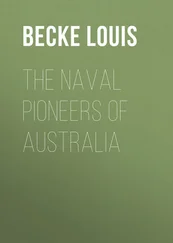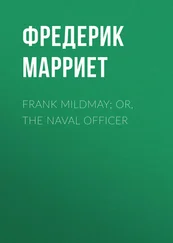Of the 95 men composing the crew of the Nautilus when she was captured, "6 were detained and sent to England to await examination as being suspected of being British subjects." 23 Of the other small brigs, the Viper , Vixen , Rattlesnake , and Syren , James does not mention the composition of the crew, and I do not know that any were claimed as British. Of the crew of the Argus "about 10 or 12 were believed to be British subjects; the American officers swore the crew contained none" (James, "Naval Occurrences," p. 278). From 0 to 10 per cent can be allowed. When the Frolic was captured "her crew consisted of native Americans" ( do , p. 340). James speaks ("History," p. 418) of "a portion of the British subjects on board the Essex ," but without giving a word of proof or stating his grounds of belief. One man was claimed as a deserter by the British, but he turned out to be a New Yorker. There were certainly a certain number of British aboard, but the number probably did not exceed thirty. Of the President's crew he says ("Naval Occurrences," p. 448): "In the opinion of several British officers there were among them many British seamen" but Commodore Decatur, Lieutenant Gallagher, and the other officers swore that there were none. Of the crew of the Chesapeake , he says, "about 32" were British subjects, or about 10 per cent. One or two of these were afterward shot, and some 25, together with a Portuguese boatswain's mate, entered into the British service. So that of the vessels captured by the British, the Chesapeake had the largest number of British (about 10 per cent. of her crew) on board, the others ranging from that number down to none at all, as in the case of the Wasp . As these eleven ships would probably represent a fair average, this proportion, of 0 to 10 per cent., should be taken as the proper one. James, however, is of the opinion that those ships manned by Americans were more apt to be captured than those manned by the braver British; which calls for an examination of the crews of the remaining vessels. Of the American sloop Peacock , James says ("Naval Occurrences," p. 348) that "several of her men were recognized as British seamen"; even if this were true, "several" could not probably mean more than sixteen, or 10 per cent. Of the second Wasp he says, "Captain Blakely was a native of Dublin, and, along with some English and Scotch, did not, it may be certain, neglect to have in his crew a great many Irish." Now Captain Blakely left Ireland when he was but 16 months old, and the rest of James' statement is avowedly mere conjecture. It was asserted positively in the American newspapers that the Wasp , which sailed from Portsmouth, was manned exclusively by New Englanders, except a small draft of men from a Baltimore privateer, and that there was not a foreigner in her crew. Of the Hornet James states that "some of her men were natives of the United Kingdom"; but he gives no authority, and the men he refers to were in all probability those spoken of in the journal of one of the Hornet's officers, which says that "Many of our men (Americans) had been impressed in the British service." As regards the gun-boats, James asserts that they were commanded by "Commodore Joshua Barney, a native of Ireland." This officer, however, was born at Baltimore on July 6, 1759. As to the Constitution , Brenton, as already mentioned, supposes the number of British sailors in her crew to have been 200; James makes it less, or about 150. Respecting this, the only definite statements I can find in British works are the following: In the "Naval Chronicle," vol. xxix, p. 452, an officer of the Java states that most of the Constitution's men were British, many being from the Guerrière ; which should be read in connection with James' statement (vol. vi, p. 156) that but eight of the Guerrière's crew deserted, and but two shipped on board the Constitution . Moreover, as a matter of fact, these eight men were all impressed Americans. In the "Naval Chronicle" it is also said that the Chesapeake's surgeon was an Irishman, formerly of the British navy; he was born in Baltimore, and was never in the British navy in his life. The third lieutenant "was supposed to be an Irishman" (Brenton, ii, 456). The first lieutenant "was a native of Great Britain, we have been informed" (James, vi, 194); he was Mr. George Parker, born and bred in Virginia. The remaining three citations, if true, prove nothing. "One man had served under Mr. Kent" of the Guerrière (James, vi, p. 153). "One had been in the Achille " and "one in the Eurydice " (Brenton, ii, 456). These three men were most probably American seamen who had been impressed on British ships. From Cooper (in "Putnam's Magazine," vol. I, p. 593) as well as from several places in the Constitution's log, 24 we learn that several of the crew who were British deserters were discharged from the Constitution before she left port, as they were afraid to serve in a war against Great Britain. That this fear was justifiable may be seen by reading James, vol. iv, p. 483. Of the four men taken by the Leopard from the Chesapeake , as deserters, one was hung and three scourged. In reality the crew of the Constitution probably did not contain a dozen British sailors; in her last cruises she was manned almost exclusively by New Englanders. The only remainder vessel is the United States , respecting whose crew some remarkable statements have been made. Marshall (vol. ii, p. 1019) writes that Commodore Decatur "declared there was not a seaman in his ship who had not served from 5 to 12 years in a British man-of-war," from which he concludes that they were British themselves. It may be questioned whether Decatur ever made such an assertion; or if he did, it is safe to assume again that his men were long-impressed Americans. 25
Of the Carolina's crew of 70 men, five were British. This fact was not found out till three deserted, when an investigation was made and the two other British discharged. Captain Henly, in reporting these facts, made no concealment of his surprise that there should be any British at all in his crew. 26
From these facts and citations we may accordingly conclude that the proportion of British seamen serving on American ships after the war broke out , varied between none, as on the Wasp and Constitution , to ten per cent., as on the Chesapeake and Essex . On the average, nine tenths of each of our crews were American seamen, and about one twentieth British, the remainder being a mixture of various nationalities.
On the other hand, it is to be said that the British frigate Guerrière had ten Americans among her crew, who were permitted to go below during action, and the Macedonian eight, who were not allowed that privilege, three of them being killed. Three of the British sloop Peacock's men were Americans, who were forced to fight against the Hornet : one of them was killed. Two of the Epervier's men were Americans, who were also forced to fight. When the crew of the Nautilus was exchanged, a number of other American prisoners were sent with them; among these were a number of American seamen who had been serving in the Shannon , Acasta , Africa , and various other vessels. So there was also a certain proportion of Americans among the British crews, although forming a smaller percentage of them than the British did on board the American ships. In neither case was the number sufficient to at all affect the result.
The crews of our ships being thus mainly native Americans, it may be interesting to try to find out the proportions that were furnished by the different sections of the country. There is not much difficulty about the officers. The captains, masters commandant, lieutenants, marine officers, whose birthplaces are given in the Navy List of 1816,—240 in all,—came from the various States as follows:
Читать дальше












